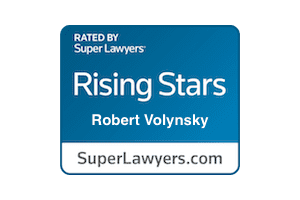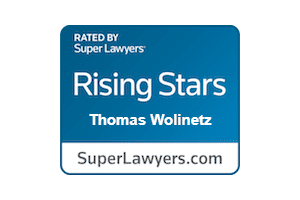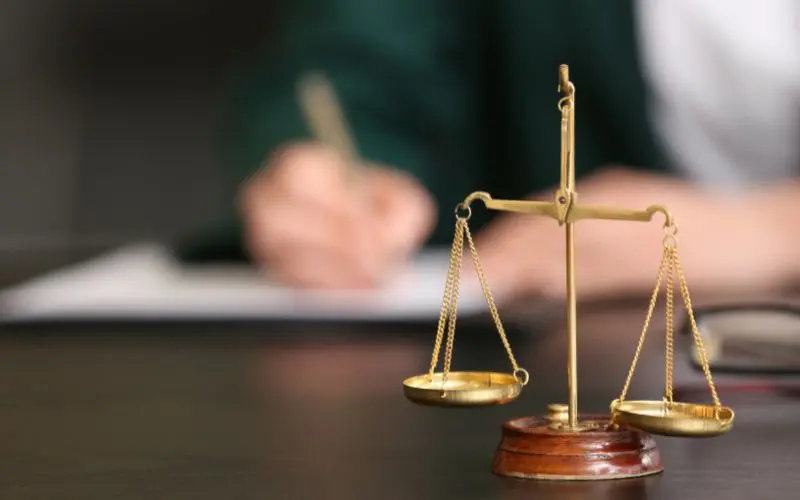



At Weltz Law, we understand that navigating the complexities of securities disputes can be daunting for investors, especially when these issues escalate to legal challenges. One of the primary methods for resolving such disputes is through FINRA Arbitration. Here, we aim to provide a clear and comprehensive explanation of FINRA Arbitration and how it can serve as a critical tool for investors seeking justice.
FINRA, the Financial Industry Regulatory Authority, is a non-governmental organization that serves as a self-regulatory body for brokerage firms in the United States. Its primary role is to protect investors by ensuring that the industry operates transparently, ethically, and in accordance with established rules and regulations. Here are some key functions and responsibilities of FINRA:
By performing these functions, FINRA seeks to prevent financial fraud, promote transparency, and reduce investors' risks, bolstering confidence in the regulation of brokers and broker/dealers in the U.S. financial industry.
The Financial Industry Regulatory Authority (FINRA) adjudicates a broad spectrum of disputes within the securities industry. This oversight is critical for maintaining the integrity and transparency of brokers and broker/dealers. The following delineates the principal types of cases that fall under FINRA's jurisdiction:
This category encompasses a range of unethical behaviors by brokers, including misrepresentation, unauthorized trading, excessive trading (churning), and negligence, all of which can detrimentally impact investors.
Such violations occur when brokers engage in deceptive practices that disadvantage or exploit investors. Examples include making unsuitable investment recommendations that do not align with an investor's risk profile or financial objectives.
FINRA rigorously investigates and prosecutes instances of fraud and market manipulation, which include Ponzi like arrangements, insider trading, and price manipulation of securities.
This pertains to failures in the operational procedures of brokerage firms which may affect transaction processing. It includes issues like trade execution failures, inadequate record-keeping, non-compliance with regulatory requirements, and supervisory issues.
FINRA regulates the communications between brokers and the public to ensure that promotional materials are not misleading and provide a balanced view of potential risks and benefits.
Brokers and firms must comprehensively disclose investment products' terms, conditions, and risks. Non-disclosure or partial disclosure can lead to substantial investor harm.
FINRA provides arbitration and mediation services as alternatives to litigation for resolving disputes between investors and brokers or brokerage firms and their employees.
FINRA's comprehensive jurisdiction ensures that the securities industry operates justly, efficiently, and transparently, thereby fostering investor confidence in the financial system. For those encountering issues under these categories, consulting with a seasoned securities lawyer familiar with FINRA’s processes is imperative for effective resolution and protection of interests.

FINRA Arbitration is a systematic yet adaptable mechanism designed to adjudicate disputes between investors and their brokers or brokerage firms and their employees. Here is a structured explanation of how the FINRA Arbitration process unfolds:
The arbitration journey commences with either an investor or a FINRA member filing a Statement of Claim with FINRA. This critical document delineates the dispute's specifics, including the involved parties, the nature of the issue, and the relief or compensation sought. Accompanying this filing, the claimant submits an arbitration submission agreement, affirming their commitment to resolve the dispute under the FINRA arbitration framework.
Accompanying the filing of the Statement of Claim, the claimant submits an arbitration submission agreement. This agreement affirms their commitment to resolve the dispute under the FINRA arbitration framework.
Upon receipt of the Statement of Claim, the respondent is allotted 45 days to file an Answer. This response addresses the allegations raised and may also introduce counterclaims or affirmative defenses. It indicates their engagement in the arbitration process.
Post-pleadings, arbitrators are selected. While parties play a part in the selection process by ranking and striking potential arbitrators from lists provided by FINRA, the ultimate appointment of arbitrators is decided by FINRA administrators. They ensure the selected arbitrators have the appropriate qualifications and backgrounds, with no conflicts of interest.
In the lead-up to the arbitration hearing, pre-hearing conferences are convened by the arbitrators to establish procedural guidelines such as hearing dates, discovery deadlines, and the issues at stake. These sessions are essential for outlining the arbitration's trajectory.
The discovery phase enables the exchange of documents and information pertinent to the dispute. This process aims to streamline proceedings and minimize costs while still allowing parties to issue subpoenas for documents and witnesses.
The arbitration hearing allows both parties to present their cases before the arbitrators. This phase mirrors a court trial but with less formality. Evidence is submitted, witnesses are called, and arguments are made, with arbitrators empowered to probe further by asking questions.
Following the hearing, the arbitrators deliberate and issue an "award," typically within 30 days. This final and binding award details their findings and decisions regarding the claims and relief sought.
A court can confirm the award, making it enforceable as a legal judgment. Appeals are limited and can generally only be pursued based on specific grounds such as arbitrator misconduct or critical procedural errors.
At Weltz Law, our securities attorneys possess extensive expertise in every phase of FINRA arbitration. We ensure comprehensive representation and protection of our client's rights throughout the dispute resolution process, from initial filing to post-award proceedings.
FINRA arbitration is preferred for resolving disputes within the securities industry due to its structured yet flexible nature. Here are several key benefits that make FINRA arbitration an advantageous option for both investors and brokers:
One of the most significant advantages of FINRA arbitration is its efficiency. The arbitration process is typically much faster than going through the court system. Most cases are resolved within 12 to 18 months of filing, considerably quicker than traditional litigation, which can take several years.
Arbitration generally involves lower costs compared to court litigation. The streamlined procedures reduce legal fees and other expenses related to extended court battles, making it a more accessible option for many investors, especially those with smaller claims.
FINRA arbitration does not adhere to the formal rules of evidence and procedure that govern court proceedings. This informality can make the process less daunting and more straightforward for non-lawyers. Parties can present their cases more directly and less technically, leading to a clearer understanding of the issues at hand.
Unlike public court trials, FINRA arbitration hearings are private. The results and any awards are also generally kept confidential. This privacy can be crucial for investors and brokers who prefer to resolve disputes discreetly without attracting public attention.
Arbitrators in FINRA proceedings often have extensive experience in securities law and the financial industry. This expertise allows them to understand complex financial instruments and transactions better than a typical jury or judge might. As a result, arbitration decisions can be more informed by the nuances of securities practices.
Arbitration awards are final and binding, and there are very limited opportunities for appeal. This finality can be beneficial as it avoids the lengthy and costly appeals process in traditional litigation. Once an award is made, the parties must abide by it, ensuring a definitive conclusion to the dispute.
FINRA’s arbitration process applies uniformly across the United States, providing a consistent method for resolving securities disputes regardless of where the parties are located. This national uniformity simplifies the resolution process for entities and individuals who operate in multiple states.
Parties in FINRA arbitration can negotiate certain aspects of the process, such as ranking and striking potential arbitrators from the lists provided by FINRA and deciding on procedural rules. While FINRA administrators decide the ultimate appointment of arbitrators, this process allows for some customization to better tailor the proceedings to the parties' specific needs.
A FINRA arbitration lawyer represents clients in the specific context of FINRA (Financial Industry Regulatory Authority) arbitration proceedings. These lawyers are crucial for individuals or entities involved in disputes within the securities industry, such as between investors and brokers or between brokerage firms and their employees. Here's an overview of the key responsibilities and roles of a
FINRA arbitration lawyer:
A FINRA arbitration lawyer begins by thoroughly assessing the client’s case to determine its merits and viability. This includes reviewing all relevant documents, such as investment agreements, communication records, and financial statements, to understand the nature of the dispute and the potential for recovery.
If arbitration is deemed the appropriate course of action, the lawyer will prepare and file the Statement of Claim with FINRA. This document outlines the facts of the case, the legal basis for the claim, and the relief or damages sought. The lawyer ensures that all procedural requirements are met and the claim is presented clearly and effectively.
FINRA arbitration typically involves a panel of one or three arbitrators, depending on the amount in dispute. The lawyer assists in the selection process, vetting potential arbitrators to ensure they are suitable for the case based on their expertise, background, and potential conflicts of interest.
The lawyer handles the discovery process, gathering additional evidence and coordinating the exchange of information with the opposing party. This may involve drafting and responding to discovery requests, organizing documents, and preparing for depositions if applicable. The lawyer also prepares the client and any witnesses for the arbitration hearing, rehearsing testimony and organizing the presentation of evidence.
During the arbitration hearing, the lawyer represents the client, presenting the case to the arbitrators. This involves opening statements, examining and cross-examining witnesses, presenting evidence, and making legal arguments. The lawyer’s ability to argue effectively and adapt to the dynamics of the hearing can significantly influence the outcome.
The lawyer may negotiate to settle with the opposing party throughout the arbitration process. A skilled arbitration lawyer evaluates settlement offers and negotiates terms to secure the best possible outcome for the client, balancing the potential benefits against the risks and costs of continuing the arbitration.
After an arbitration award is issued, the lawyer assists with any necessary post-arbitration actions. This might include confirming or challenging the arbitration award in court, depending on the circumstances and outcome of the case.
Apart from representing clients in disputes, FINRA arbitration lawyers also provide ongoing advice on compliance with securities laws and FINRA regulations to help clients avoid future disputes and maintain good standing within the industry.
Navigating the complexities of the financial markets can be daunting, and disputes involving investments or brokerage services often require specialized legal expertise. Here are some signs that indicate you might need the services of a FINRA claims lawyer:
If you have disagreements or conflicts with your broker or financial advisor, particularly regarding managing your investments, a FINRA lawyer can help resolve these disputes. Common issues include disputes over unauthorized trades, misrepresenting investment information, or failure to follow your instructions.
If you suspect your broker has engaged in unethical behavior such as churning (excessive trading to generate commissions), negligence, or fraud, it's crucial to consult a FINRA lawyer. They can assess your situation and determine if there has been a violation of securities laws or FINRA rules.
While not all poor investment performance is due to misconduct, unexplained losses or performance that significantly deviates from market trends may warrant investigation by a FINRA lawyer. They can help determine if the losses result from poor advice, unsuitable investment strategies, or improper management.
Investments in complex products like derivatives, structured products, private placements, or Real Estate Investment Trusts (REITs) often involve higher risks and complexities. If you encounter issues in transactions with these products, a FINRA lawyer can help navigate the complexities and protect your interests.
If you or your firm is the subject of a regulatory investigation or complaint by FINRA, having legal representation is crucial. A FINRA lawyer can guide through the compliance process, help prepare responses to regulatory inquiries, and represent you in proceedings.
Problems with accessing your funds or withdrawing investments from your brokerage account can sometimes be a sign of deeper issues. A FINRA lawyer can help clarify these matters and ensure that your rights as an investor are upheld.
If you're considering arbitration or mediation under FINRA's dispute resolution process, a FINRA lawyer can represent you. They are familiar with the arbitration process, know how to file claims, and can effectively advocate for your interests during the proceedings.
If your broker or advisor fails to provide clear and regular communications or adequate documentation related to your transactions and holdings, it may be a sign of mismanagement or misconduct. A FINRA lawyer can help you demand the necessary documentation and take action if wrongdoing occurs.
Choosing the right legal representation is crucial in navigating the arbitration process effectively. At Weltz Law, our attorneys specialize in securities law and have extensive experience in representing investors in FINRA Arbitrations. Here’s why you should consider our services:
Contact Weltz Law today if you believe you have been wronged in your securities investments and are considering FINRA Arbitration. Our experienced securities lawyers are ready to help you understand your rights and guide you through the arbitration process to seek the justice and compensation you deserve.
Reach out to us and let our expertise work for you in securing your financial future.
Fill out the form below or call 877-905-7671 to schedule your free consultation
By Appointment Only
5 N Village Ave 2nd Floor
Rockville Centre, NY 11570
By Appointment Only
9171 Wilshire Blvd #500
Beverly Hills, CA 90210
Attorney Advertising | Prior results do not guarantee a similar outcome. The information on this website is for general information purposes only. Nothing on this site should be taken as legal advice for any individual case or situation. This information is not intended to create, and receipt or viewing does not constitute, an attorney-client relationship. This site is protected by reCAPTCHA and the Google Privacy Policy and Terms of Service apply.